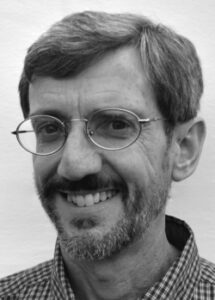Our image of health care depends on our understanding of health. And this, at its most basic level, begins with an important question: Is health a possession, or is it a gift? The answer makes all the difference.
If health is a possession, it is my health — something to have and hold, a thing like any other tangible reality, such as money, cars, or houses. It is a good definable in my terms and, as a material value, obtainable at whatever level societal resources and my individual purchasing abilities allow. Such health depends on choice, which makes having many choices essential. This is the current trend, to make health care a commodity and the patient a consumer who chooses among a menu of options to control health. As long as we remain here, the danger is that our worries will increase, our wasteful spending will multiply, and our waylaid commitments to neighbor will degenerate into wanton disregard.
But viewed another way, health is received as a gift. Rather than seeing health as a material good managed for our personal happiness, we receive it as a precious endowment. What would that mean for why we pursue health and how we shape health care?
First, endowments are not given in equal portions; therefore, health will not be received in equal amounts. This truth is verified by our everyday experiences: some are born with longevity in their genes and strength in their bodies, while others struggle almost daily with disability and disease. Since we begin with such disproportion, there is no abstract ideal of health. So, rather than pursuing perfect health, we will nurture the health we have received. In addition, we will structure health care to strengthen what we have been given instead of reaching for what we do not have or tightly grasping what we cannot keep.
Second, as we increasingly see health as a gift, we become better able to discern its deeper reason — to invest it in the good we are given to do. When health is seen as a gift, it is not protected for its own sake nor hoarded for fear of losing it. Instead, it is nurtured so that we can use it to gain and grow other goods and benefits. We may even go so far as to see a relationship between the proportion of health we have received and the purposes we are meant to accomplish.
This is an ambitious set of assertions and will force us to grapple with many complex issues. What do we do when the endowment seems small? How do we respond when our endowment is diminished through bad choice, bad luck, bad care, or all of these? How do we respond when we risk our investment and experience loss, or when our health diminishes due to aging? Acknowledging this multitude of factors that can alter our health; seeing health as gift enables us to appreciate the value of good health care. The maintenance of health and prevention and treatment of disease — endeavors we have begun to grasp with increasing clarity and success — will be sound goals when reasonably and wisely pursued. But if we lose track of what health is for, our personal pursuits will remain selfish and unsatisfied, and our health care systems will continue to grow in fragmented, irrational, and unjust ways.
Excerpt taken from Pursuing Health in an Anxious Age by Bob Cutillo, MD, published September 2016. Used by permission of Crossway, a publishing ministry of Good News Publishers, Wheaton, Il 60187, www.crossway.org.

